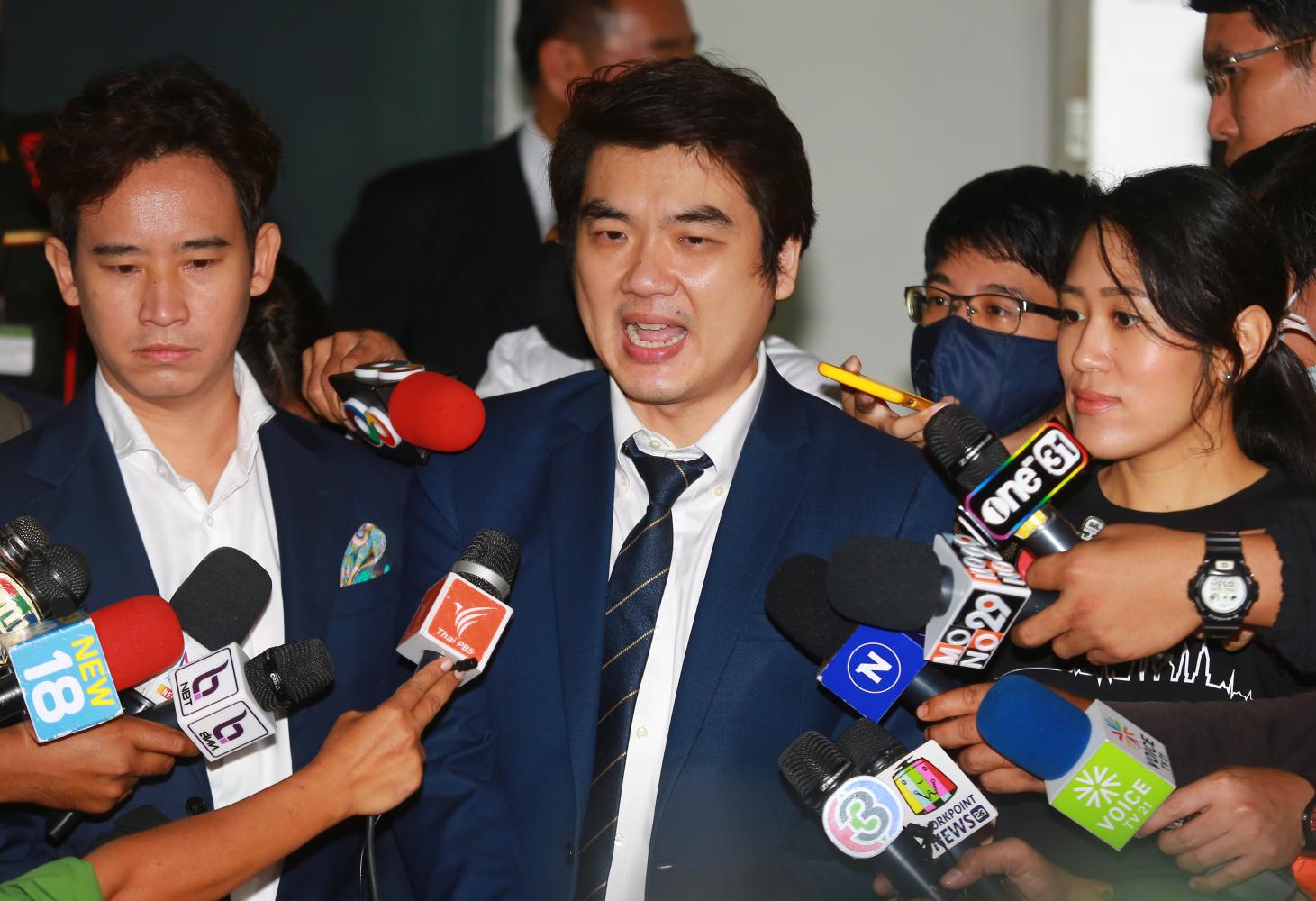
Piyabutr Saengkanokkul, secretary-general of the Progressive Movement, is due to answer a charge of lese majeste at Dusit police station on Monday.
Despite many years spent critiquing the issues related to Section 112 of the Criminal Code, this is the first lese majeste charge the law professor has faced.
The legal action was filed against Mr Piyabutr by historian Thepmontri Limpaphayom for offering the opinion that the lese majeste law as well as related sections in the constitution be improved to prevent abuse by law enforcement authorities bent on persecuting people who freely express their views.
On June 16, Mr Piyabutr posted a message on social media disclosing that he had been issued a warrant by Dusit police summonsing him to answer a charge of defaming and offending the monarch.
He had intended to answer the charge on June 12. However, he and his lawyer were busy attending other appointments and so they postponed attending to hear the charge until today.
Pol Lt Col Pichai Mee-atthiman, deputy superintendent of Dusit police, said it was unknown if supporters of the former MP would accompany Mr Piyabutr to the police station.
If many people turned up to offer Mr Piyabutr moral support, police reinforcements may need to be mobilised to keep peace and order, he added.
Meanwhile, Rangsiman Rome, a Move Forward Party (MFP) list MP, said the lese majeste law has been cited as grounds for charging a long list of people including social media influencers and that Mr Piyabutr is just the latest to face prosecution.
The MP said it should not be allowed for Section 112 of the Criminal Code to be interpreted so broadly that it can be used as tool for persecution.
The interpretation must stick to the letter of the law and it must be determined what actions are deemed to constitute an offence under Section 112, he said.
Frequently the definition of the law has been exaggerated to the full extent of the "imagination" of law enforcement authorities, he said.
"The injudicious application of the lese majeste law without careful legal consideration can only cause questions to be asked about the higher institution," Mr Rome added.